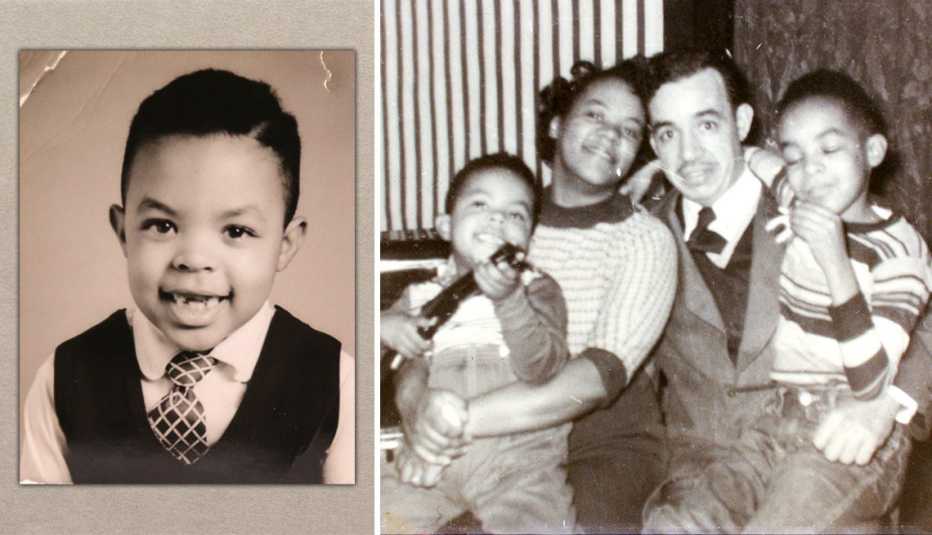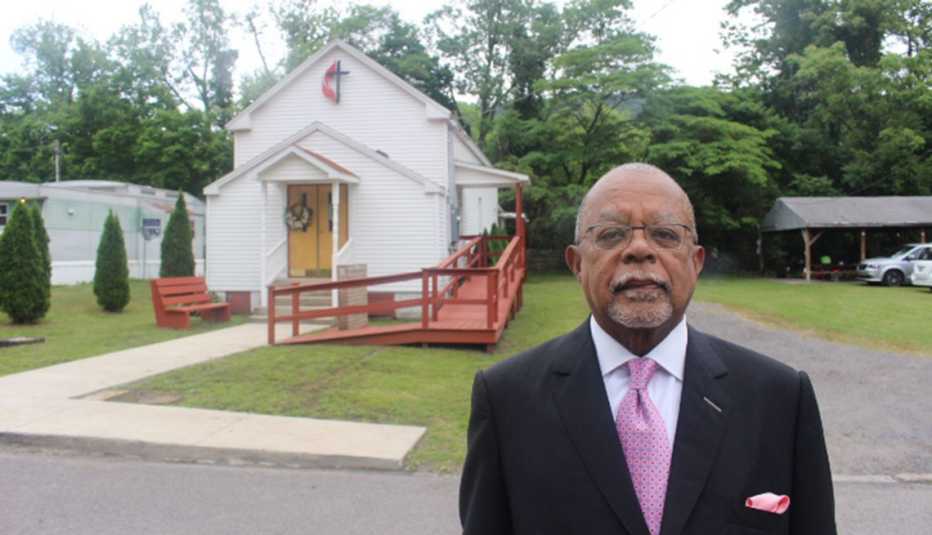AARP Hearing Center
Some public intellectuals win their places in society through fierce debate, showing off the sharpness of their minds during verbal attacks. But Henry Louis Gates Jr. took a slightly different path. He did it by being charming.
Gates, who bouncily introduces himself as Skip, is a charismatic everyman who just happens to be smarter than almost everyone else. Arguably the world’s foremost scholar of African American literature, Gates has published such an influential body of work that he helped expand the canon of American literature taught at universities to include Black authors such as Zora Neale Hurston and Ralph Ellison. In 1981, he was part of the inaugural group of recipients of the MacArthur Fellowship — the so-called genius grant.
A Conversation With Henry Louis Gates Jr.
In a new episode of Real Conversations with AARP, Harriette Cole sits down with distinguished professor, genealogist and author Henry Louis Gates Jr.
Tuesday, Mar 19, 2024
7:00 p.m. ET • 6:00 p.m. CT • 5:00 p.m. MT • 4:00 p.m. PT
He has, more than any other scholar in the U.S., ensured that Black culture and literature are not only preserved but disseminated throughout America in every which way — books, movies, television and continued scholarship. And at 73, he’s creating more popular work than ever. The 10th season of his PBS celebrity genealogy show, Finding Your Roots, premieres Jan. 2 and features Valerie Bertinelli, LeVar Burton, Michael Douglas, Dionne Warwick and Sammy Hagar. (AARP is a corporate sponsor of this season of the show.) A month later, PBS is airing Gospel, Gates’ four-hour documentary on that quintessentially American worship music. The month after that, his book The Black Box: Writing the Race, will provide a home version of his Harvard intro course on African American studies.
Here, in a wide-ranging and exclusive interview, Gates recounts the path that led him to his influential perch.


Roll up your sleeves
My father worked two jobs: at the paper mill and as a janitor at the telephone company. The phone company was a small office with six operators. They loved my father. We never had a phone bill. And because he had two jobs, we were the most prosperous Black family in Piedmont, West Virginia.
My brother and I would start looking at the Sears, Roebuck catalog in July for our Christmas presents, and I got pretty much whatever I wanted. After Christmas we were asked to bring in our favorite new toy to school. It took me years to realize that that was patently unfair. When I was 13, I started buying Christmas presents for about 12 kids in the neighborhood. It was a practice motivated by a sense of privilege and guilt.
I have replicated my father’s life, but doubled. I have probably four jobs. I have a seven-day work week. And I love it.
A house that reads
The paper mill, which employed 2,500 people, let out at 3:30. So the mill whistle would blow then, and school let out at the same time. We would have dinner at 4 o’clock. Then my dad would go to his second job at 5 o’clock and get home at 7:30. Every evening he would read the paper and do the crossword puzzle. He subscribed to Alfred Hitchcock’s magazine. He read more books in his life than I’ll ever read in mine.


Flirting with God
My mother went through a very severe menopause. One Sunday when I was 12 years old, they were taking Mom into the hospital. And my mother told me she was going to die. I went up to my bedroom. I cried and made a deal with Jesus that if he let my mother live, I would give my life to Christ. On Wednesday, she came back from the hospital.
That following Saturday, I hitchhiked 5 miles away to the county seat, Keyser, West Virginia. I walked into the service at the Black Methodist church. The average age was, like, 95. There’s a call to the altar if you want to give your life to Christ. So I stood up and everybody in the church got around me. They ask you five questions and you say “I do.” I cried. Everybody cried. It was one of the most moving things that ever happened.





































































More From AARP
Historian Henry Louis Gates Jr. Explores the Past but Appreciates the Present
‘Finding Your Roots’ host talks rum, ratings and resolutions
Must-Read Books About the African-American Experience
Top picks suggested by scholar Henry Louis Gates Jr., author of 'The Black Church'
PBS Documentary Looks at Powerful Role of 'The Black Church'
Henry Louis Gates Jr. explores its 400-year influenceRecommended for You